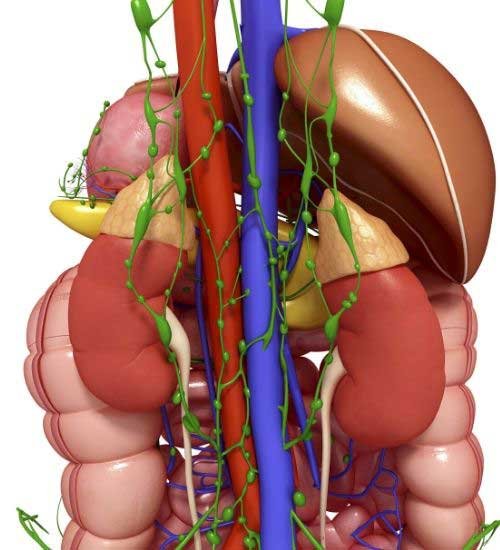
The endocrine system is a glands network that makes the hormones to support cells one to others inside your body.
They’re accountable for almost all cells, tissues, and functions in your body.
If the endocrine system becomes unhealthy, you will face problems in adolescence, or in getting pregnant or controlling stress.
You also may have weak bones, gain weight, or have a lack of energy.
Because excessive sugar in your blood will prevent moving cells.
Read More: Understanding Type 2 Diabetes, Symptoms, Causes, and Treatments
Dear viewers, here, I will inform you about what is the function of the endocrine system. Please read the full article.

What does it mean to a Gland?
A gland is an organ that makes hormones for performing a particular job in your body.
Endocrine glands release the stuff they produce into your blood circulation.
The Function of Endocrine System Organs:
Your endocrine system glands make hormones to control your moods, growth, metabolism, tissues, and reproduction.
Endocrine system organs control the ways your hormones releasing.
It energies hormones into your blood circulation so that they can move to other body parts.
Parts of the Endocrine System organs:
The endocrine system is made up of different glands.
The pituitary gland, neural structure, and pineal glands are in your brain.
The parathyroid and thyroid glands are in the neck.
The adrenals are on the top of your kidneys, the thymus stays in between your lungs, and the pancreas is behind your abdomen.
Testes (male), ovaries (female) are in your pelvic part.
Hypothalamus:
This system organ is linked with your nervous system.
Its key role is to give signal your pituitary gland to begin or stop producing hormones.
Read More: How to Increase Dopamine Naturally in The Brain: 10 BEST WAYS
Pituitary Gland:
This is known as the master gland. It takes information from the brain to tell other organs what is needed to do inside the body.
It makes lots of necessary hormones, like prolactin, growth hormone, which helps to breastfeed mothers to produce milk, and luteinizing hormone controls testosterone for males and estrogen for females.
Pineal Gland:
It makes a chemical reply known as melatonin that comforts your body to get sleep fast.
Thyroid Gland:
This gland controls your metabolism by making thyroid hormones.
If this gland doesn’t make adequate hypothyroidism, everything will be slower.
Your heart speed may slow down. You might get clogged and gain weight.
If hyperthyroidism becomes too much, everything will speed up.
Your heart may race. You may have diarrhea, as well as may lose weight without any reason.
Parathyroid:
These four sets of small glands stay the backside of the thyroid.
They play a vital role in your bone health. These organs control your bone’s phosphorus and calcium level.
Thymus:
This organ produces white blood cells known as T-lymphocytes that can fight against infection and help to develop a teen’s immune system.
This gland starts shrinking after adolescence.
Read More: Make Your Own Most Powerful Blood Cleansing Drinks at Home
Adrenals:
These glands play a vital role in making the “fight or flight” hormone adrenaline (also named epinephrine); these two glands also produce hormones that are called corticosteroids.
They impact your metabolism and sexual role, among other things.
Pancreas:
This is a part of both the endocrine and digestive systems.
It helps your digestive system to break down foods.
It also helps in producing the hormones glucagon and insulin.
That confirms that you have the right amount of sugar in your blood cells.
If you don’t make insulin, you will have the possibility to suffer from type 1 diabetes.
Your blood sugar levels can rise seriously high.
A person with type 2 diabetes, his or her pancreas, produces a few insulins typically, those are not enough.
Ovaries:
The function of the endocrine system female produces progesterone and estrogen.
These hormones help to develop breasts at adolescence, support a pregnancy, and control the menstrual cycle.
Testes:
This gland makes testosterone in men.
It helps in developing facial and body hair in adolescence.
It also helps the penis to grow larger and plays a vital role in producing sperm.
Read More: Symptoms of Menopause at 40: How Can You Know Menopause Symptoms
Health Issues of Endocrine System
With ages, it’s normal noticing some changes in your endocrine system.
Your metabolism slows down.
Therefore, you may gain some extra weight even though you haven’t changed your eating or exercising habits.
Hormonal changes also may happen partially.
You have the possibility to have a heart ailment, osteoporosis, and type 2 diabetes with your age.
Age does not matter; infections, stress, and some chemicals can also affect your endocrine system.
Genetics or lifestyle changes can increase the possibilities of occurring endocrine disorders like diabetes, hypothyroidism, or osteoporosis.
Endocrine System Diseases:
Acromegaly:
Now and then, the pituitary gland produces too much hormone, and your bones become bigger.
It commonly involves your feet, hands, and face.
This starts typically at mid-age.
Adrenal Inefficiency:
A person with insufficient adrenal can’t produce sufficient hormones, like cortisol, that controls tension.
Hyperadrenalism:
In this circumstance, your body produces excessive Hydrocortone.
You will gain weight, stretch marks, bump, then get weakened bones and muscles and maybe get a bump on your upper back.
Hyperthyroidism:
This happens at what time your thyroid gland produces more hormones than your body’s requirements.
It’s also known as an overactive thyroid.
For this reason, your system will run fast, and you may feel tense, lose weight, have sleeping problems, and may have a speedy heartbeat.
Read More: Heart Attack Symptoms: These 9 Signs will Warn You before 1 Month
Hypothyroidism:
During this time, your body doesn’t produce sufficient thyroid hormone. For this reason, your system gets slow down.
You will feel exhausted, have a slow heartbeat, gain extra weight, and get muscle or joint pains.
Hypopituitarism:
Sometimes your pituitary gland will not be able to make certain types of hormones, and your thyroid and adrenal glands are not being able to work correctly.
Several endocrine Neoplasias:
A group of complications that disturb your endocrine system.
This occurs in tumors as a minimum of two on endocrine glands or in other tissues.
Polycystic Ovary Disease:
A variant of multiplicative hormones can disturb your ovaries not to produce an egg or not to release it in ovulation.
This can stop your periods, cause acne, and grow hair on the chin or face.








